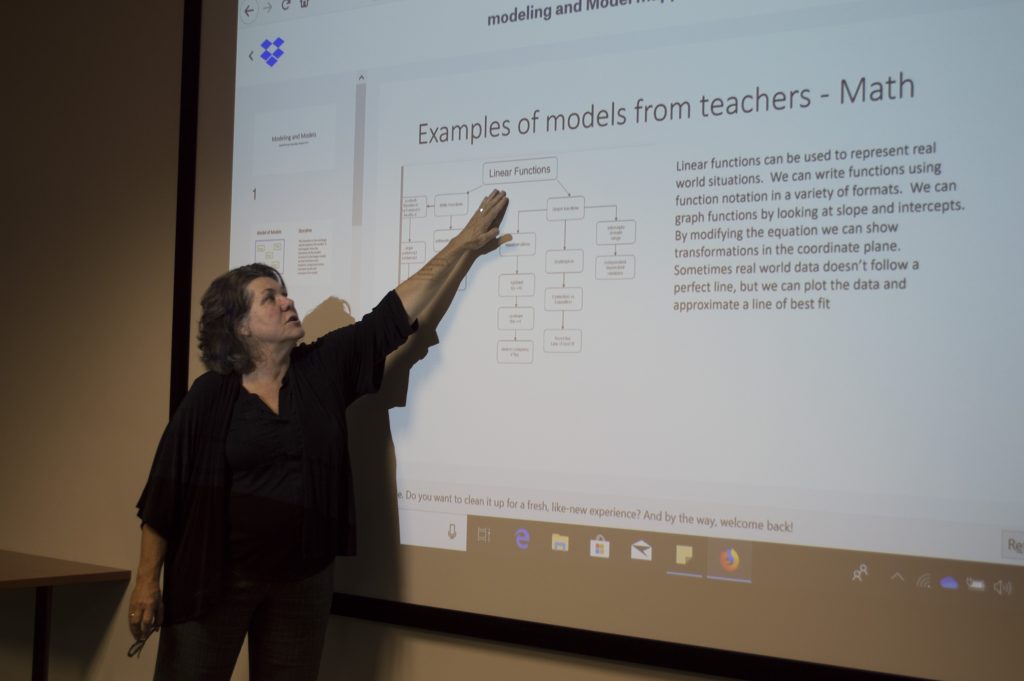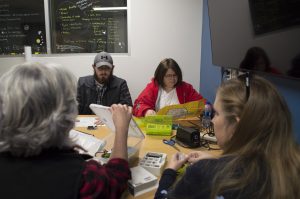UF LEADS WITH INNOVATIVE PROCESSES TO STIMULATE EFFECTIVE NEW TEACHING METHODS FOR K-12 EDUCATORS
Near the end of December 2019, the Florida Talent Development Council released a report outlining the path forward for workforce development in the state. Governor Ron DeSantis highlighted the importance of the report, saying, “Ensuring that Floridians are prepared for the jobs in the 21st century is critical to the future success of our great state.” The University of Florida has already set plans in motion to help accomplish this goal.
The Herbert Wertheim College of Engineering is using a $5-million grant from the U.S. Department of Education to teach K-9 educators how to use sensors and probes as a means of collecting and analyzing data in order to build core concept models for students. Known as the EQuIPD program, which stands for Engaged Quality Instruction through Professional Development, it provides services and coaching to 100 “intervention” teachers in 11 school districts.

NANCY J. RUZYCKI, PH.D. LEADS SESSION AT UF PROFESSIONAL DEVELOPMENT WORKSHOP FOR STEM TEACHERS
Teachers in the program are learning to use process mapping for concept models, as well as system thinking, to enhance students’ science, technology, engineering and math (STEM) awareness and empower them to pursue engineering careers. The modeling and process mapping help clarify the overall course goals for students. Technology use via sensors and probes supports the development of the model through hands-on, inquiry-based activities in a collaborative setting.
These concepts were fully explored among a group of Florida teachers in a daylong professional development workshop organized by Nancy J. Ruzycki, Ph.D., Senior Lecturer and Director of Undergraduate Laboratories, Department of Materials Science & Engineering, who is the principal investigator for the grant. The workshop was attended by teachers in the EQuIPD program as well as other teachers from around the state who are interested in improving their skills in teaching STEM concepts.
Multiple industry partners played important roles in the sessions. Educational representatives from the companies led some of the hands-on sessions, demonstrating data collection and analysis using software available to K-12 class levels. “The Texas Instruments TI Rover activity was good. It brings a hands-on component to the math. I can see my students using the scientific calculators that way and really enjoying it,” said Wayne Robertson, high school Algebra instructor, Pine View School in Sarasota.
Carlos Fernandez, a member of the Microsoft® Modern Workplace Team for US Education, highlighted his company’s efforts, stating, “Computer science is something that rolls into all subject areas of education. We are working very closely with the Florida Department of Education, where computer science is now a major focus in the state of Florida. Teachers and students are a key priority for our company right now, and we understand the value and importance of professional development, especially around STEM; so we are very excited to be here today.” Microsoft has provided support to the EQuIPD grant to help create a collaborative online workspace for teachers and students to use through their Microsoft Teams product.

TEACHERS LEARNING HOW TO IMPLEMENT STEM IN THE CLASSROOM
Numerous successful outcomes from the EQuIPD program have already been noted and catalogued. Teachers have reported strong engagement with students and increased system thinking from as early as first and second grades. Dr. Ruzycki commented on this success, “The University of Florida is the premier land grant Institution in the state of Florida, and for over 150 years it has provided education to Florida students; it only makes sense for the university to be a leader in the professional development and support of K-12 teachers across the state.”
The EQuIPD program is now in the second year since its inception. The program also involves 150 control teachers, who have access to information but will not receive the coaching until year 3 of the grant project, when the intervention teachers will then train them in a “train-the-trainer” model. It is believed that the trained teachers can then become coaches for their peers and continue the momentum of influencing STEM education with effective innovation and technology within the state of Florida.
“Thank you so much for allowing me to participate in yesterday’s EQuIPD workshop. It was phenomenal,” said Katie Payne, a teacher at Keystone Heights High School in Clay County. “This was my first session, and I left feeling like a kid on Christmas Day. The engineering students [who spoke during lunch] were so impressive and the opportunities provided with this grant are so exciting.” Although Keystone Heights is not participating in the current EQuIPD program, the daylong workshop gave teachers from this high school and others in the area the opportunity to learn about new teaching models and see what can be accomplished.
